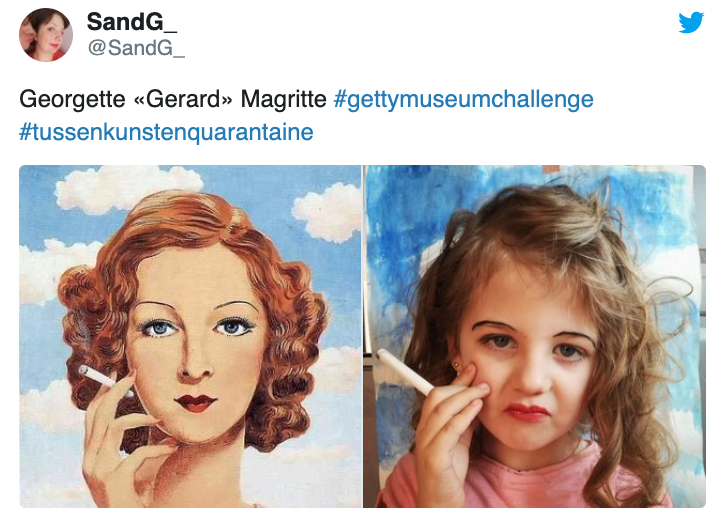4.13 The Pulse Of Covid-19: The Trends Of The Past Week
What’s giving you hope right now? This is one of the 20 new greetings author Warren Berger says we should consider instead of ‘how are you?’ in these intense times. So what’s giving us hope: the idea that ‘acts of kindness’ went from a luxury to a state of necessity. Two months ago ‘surprise and delight’ was just a marketing tactic and now it’s a bloodline for society. And while the media doesn’t have the time or manpower to focus on all of it, there are thousands of acts of kindness happening daily pulling humanity closer together. In this time of despair, leaders of all kinds are getting out of the drama of their own lives and building the collective resilience in each other.
With that in mind, let’s look into what’s emerging in the market and how companies, individuals, and communities are leading into the unknown as a source of insight, inspiration, and maybe even a point of levity.
This week we’ve woven Harris’ latest data throughout the trends, highlighted in bold.
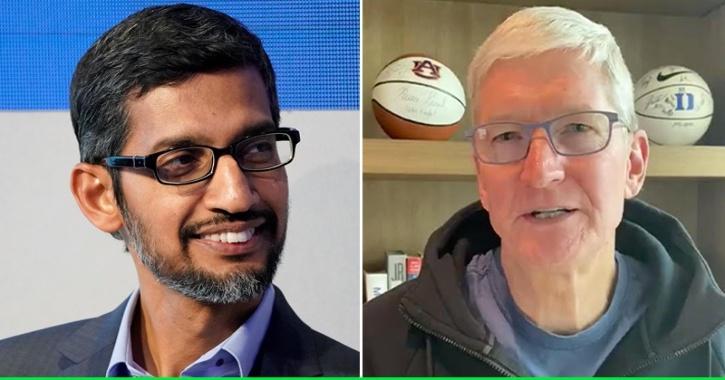
Leading For The Long-Term: Leaders are stepping up and trying to slowly piece together the fragmented American psyche with ‘safety and security’ signals, policies and commitments that help Americans reimagine a world where they can safely emerge and plan for their future again. 88% of Americans say they have higher perceptions of companies that are donating money, supplies or employee’s time to aid relief in communities.
- In a potentially giant step forward for COVID-19 tracking, Google and Apple put their differences aside, partnering to create a contact tracing technology system. From a functionality POV, Google will show virtual care options more prominently in search results to make it easier to find telehealth services, while Apple Maps will soon display COVID-19 testing sites.
- Apple additionally launched a $50MM music relief fund for indie labels, to help keep indie artists afloat, joining others like Spotify, SoundCloud and Live Nation in pledges to help the music industry.
- Jack Dorsey pledges over a quarter of his wealth ($1B+) to provide relief to Covid-19, with a nonprofit initiative called Start Small, which is being transparently tracked through Google Docs. Tyler Perry is also chipping in, paying senior-hour groceries at 44 Krogers in Atlanta and 29 in New Orleans.
- USAA gives customers 20% credit on auto premiums for the next two months aligning with Americans’ desires: 88% of Americans report having positive perceptions of a company that allows customers to forgo payments for up to 6 months or offers lower interest rates or other programs.
- Delta extends elite membership status until 2021, and Mary Brown’s Chicken & Taters, a Canadian chicken chain, is paying to take down newspapers’ paywalls.

Retail Rearranged: Non-essential retail, for the most part, is being put on hold, as government and policies prioritize essential items, supply chains, and social distancing. Despite retailers boarding up their windows, it’s one of the top things consumers want to get back to, in fact, 67% of consumers say they miss shopping in stores since Covid-19 shutdowns. Additionally, Americans believe retailers should be granted some financial relief, with 76% of Americans saying that large national retailers should be allowed to postpone rent payments if they cannot afford it due to the coronavirus, even if they remain open for business.
- The need for safety is – at least temporarily – rearranging design in big-box retailers with one-way aisles, touchless payments, and Plexiglas shields. Meanwhile, many are also seeing shifts in merchandise as some states have required big-box retailers to only sell essential items, blocking non-essential items to online-only delivery or curbside pick-up. Many Americans are calling for adjusted logistics, including mandatory masks for workers and patrons (37%), spacing out of seating (35%), and occupancy limits (34%). 1 in 4 go so far as to say they would like to see thermal testing of the facility (25%).
- Amazon has delayed ‘Prime Day’ until at least August (i.e., back-to-school season), hoping by that time things consumers will be ready to spend, but the National Retail Federation warns there may be a dip in imports impacting the fall shopping season. The Gap has canceled its summer orders and is saving some of its inventory for a 2021 launch. In the meantime, this startup is creating free virtual storefronts for retailers to create a remote shopping experience from home.
- WFH has shifted retailers into selling ‘Zoom’ outfits and WFH comfort bundles; the NYTimes covers men wanting to look ‘in control’ virtually, while Vogue focuses on matching sweatsuits, and Walmart reports a 20% increase of sales in tops, but not pants. DTC retailers, like Mack Weldon, say their “comfort/lounge” category grew “on average 60%,” compared to the days before WFH.
- While WFH shifts the workforce into a more casual mood, young people are recreating their ‘Friday night looks’ via creative outlets like the ‘Don’t Rush Challenge.’ And people around the world are getting dressed up to take out their trash, proving fashion is all mindset.
- Retailers are leveraging music and Instagram Live to engage and build fans during this slow period. For example, Millennial brand Glossier (valued at $1B+) operates 30 Spotify playlists for its fans,meeting the needs of 38% of Americans who say they are using more music apps during the shutdown. YouCam is providing Free AR for beauty brands to build digital experiences. And streetwear brands like Chinatown Market are generating emotional excitement during quarantine with IG Live, charity collabs, and DIY projects.
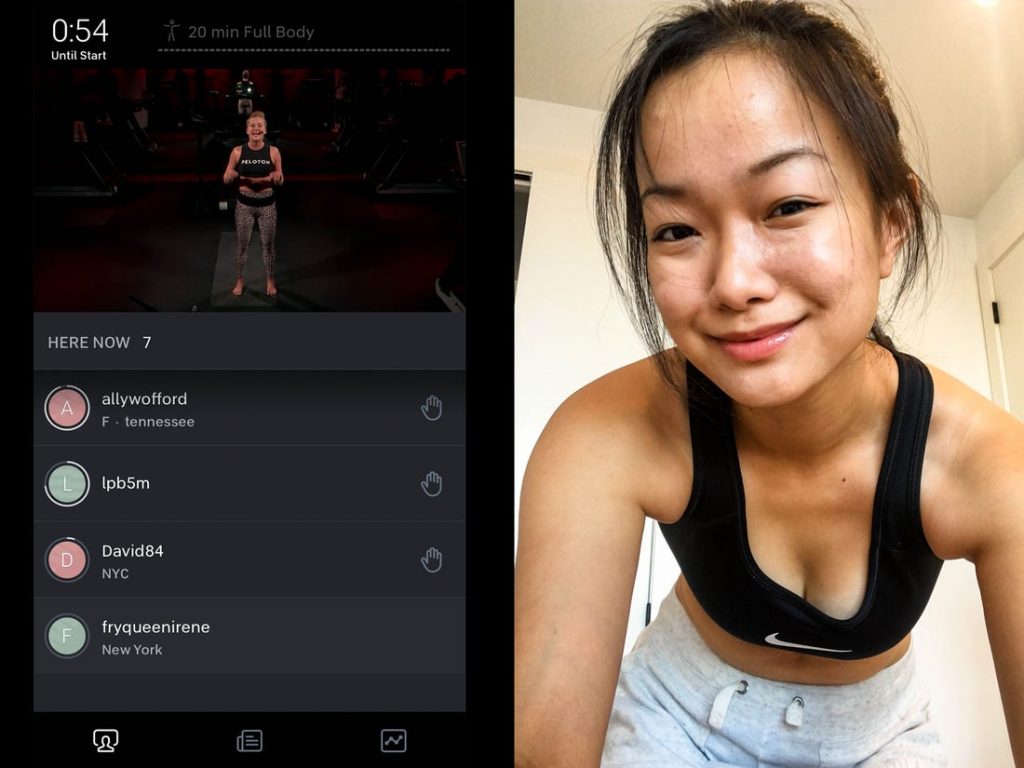
Social Distancing Twilight Zone: Americans anticipate a socially distant twilight zone after restrictions are lifted. A majority believe it will be more than a month from now (51%) things should start returning to work and life as normal and, even after they are, most anticipate a slow start to resuming ‘normal’ life.
- Working It Out @ Home: The majority of Americans say they plan to continue exercising at home (85%), instead of going to the gym (15%).
- Hollywood Home-tainment: 79% plan to watch movies at home, in lieu of going to the theater (21%), and a similar number say they plan to stream live events at home (73%), instead of going in person (27%).
- DIY Groomers: 57% plan to buy their own grooming supplies, instead of going to a hairdresser post covid (43%), especially men at 61% vs. 54% of women. However, things might change as people face hair dye shortages and their virtual hair cutting lessons don’t pan out.
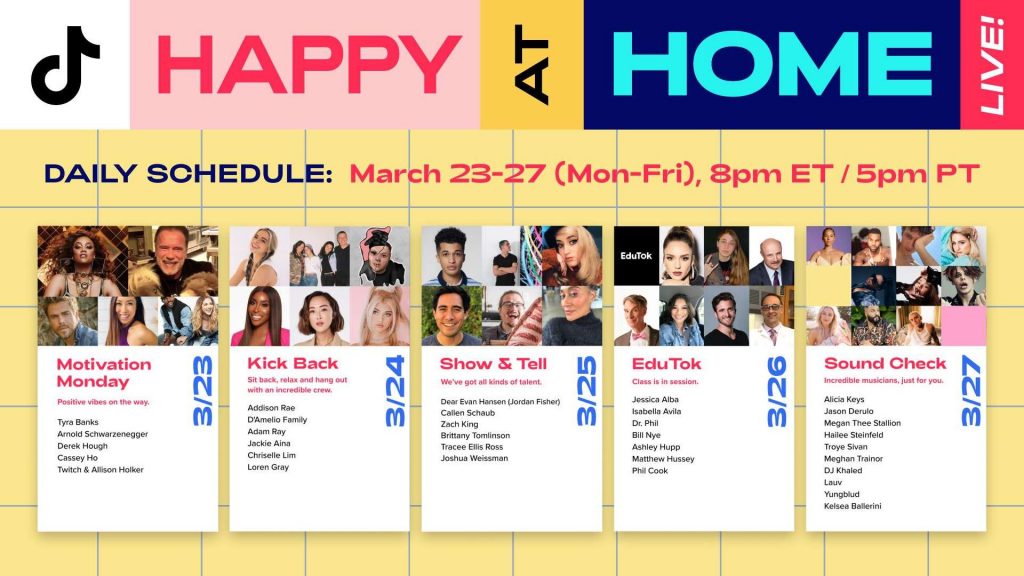
Creative Foodie Distancing: Americans can’t wait to go out to eat again, but they aren’t quite sure when and what it will look like. Aside from spending time with family and friends (74%), the second thing Americans miss most is eating out (70%), yet a majority say they are more likely to order take out when the economy re-opens (65%), over dining in (35%), while a similar number say they plan to continue having virtual happy hours (67%), instead of going to bars and restaurants (33%).
- Restaurants attempting to woo consumers back are getting creative with distancing measures, such as Calabama, a pop-up restaurant in L.A. that serves its sandwiches lowered down in a bucket, following a famous Istanbul tradition. Meanwhile, Basil Street is launching contactless robotic Pizza vending machines to treat social distancing taste buds.
- The bar scene is also finding its place online as Molson Canadian launches virtual happy hours to support local bars, whiskey tastings go virtual, and a new type of virtual club enters the scene, from Club quarantine, to Daybreaker’s Virtual House Party, to Instagram strip clubs, to TikTok and chill with #HappyAtHome nightly concerts.
- Doubletree is doling out comfort, giving away their famous secret chocolate chip cookie recipe, while Disney is giving away their famous churros and dole whip recipe and this Gen Zer, Cal, offers to bake banana bread with your kids.
- Americans are eager to get back to the supermarket: 73% say they will return to buying groceries in person, instead of turning to grocery delivery (27%). As online grocers like Amazon start virtual waiting lists and Mondelez experiences ‘unprecedented’ demand for online snacks, other food suppliers are jumping in to fill gaps. For example, restaurants are pivoting, now selling groceries, restaurant suppliers such as Baldor Speciality Foods and Pepper are becoming DTC brands, and the Netherlands is planning micro-markets to promote social distancing at the farmers market.
- Overall, Americans report consuming more home-cooked meals and fresh food during this time, snack food is also on the rise. Parents are relying more on more coffee (38% parents, vs. 31% non-parents) and chocolate (29% parents, vs. 22% non-parents).
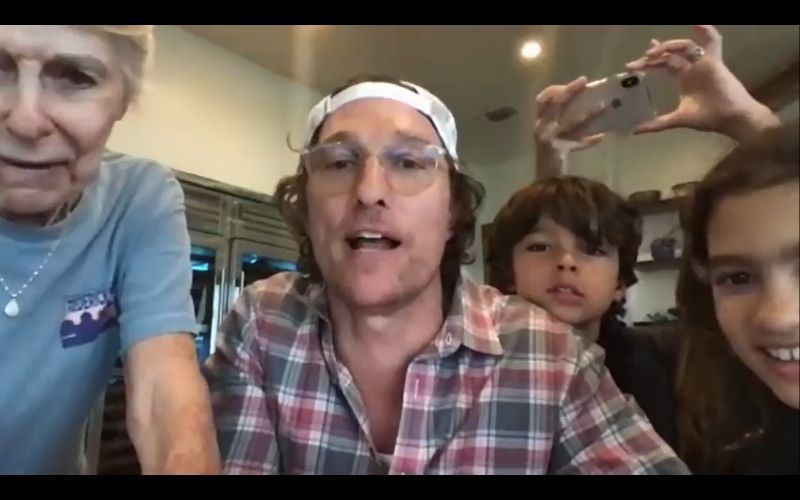
Flywheel Entertainment: Harris’ insights were featured in the WSJ, With America at Home, the Streaming War Is Hollywood’s Ultimate Test,’ highlighting the increasing appetite for streaming entertainment, especially among families, but also Hollywood’s challenge to fill this increasing desire remotely. For example, parents with children at home are spending $60 a month for streaming subscriptions—well above the general population—and have 3.8 services (vs. 1.7 for households with no children). Nearly half of parents (49%) with children at home recently subscribed to Netflix in March (vs. 18% non-parents).
- In the past week, we’ve seen Hollywood get creative, building content on the fly, even while doing it from their homes. For example, SNL cast reunited entirely from home with Tom Hanks and a special Bernie/Larry David appearance, while Sting, Jimmy Fallon, and the Roots remixed ‘Don’t Stand So Close to Me’ from home, and Kristen Wiig and Will Ferrell star in the world’s first socially-distanced soap opera. Perhaps even better, this week was Matthew McConaughey’s virtual bingo night for seniors, an experience you just can’t make up.
- Continuing the remote comedic relief, Tina Fey and other writers share what their TV characters would be doing in quarantine, while the Comedy from Home platform launched yesterday.
- Disney released a new ‘Simpsons’ short to Disney+ early, and announced plans to remake its classic 1973 Robin Hood film as a CGI Disney Plus exclusive.
- On Easter, Andrea Bocelli brought millions of people around the world together, in his ‘Music For Hope’ concert at Piazza del Duomo in Milan, which has been viewed over 33 million times to date. And, this Saturday, you can tune into Lady Gaga’s One World: Together At Home, featuring Paul McCartney, Stevie Wonder, John Legend, and Sesame Street.
- Gaming continues to surge as ‘Call of Duty: Warzone’ reaches 50 million players within one month, and Nintendo says “more systems on the way” as Switch sells out worldwide. Meanwhile, Animal Crossing announces a fishing tournament schedule and more in-game events to come.

500 ft of Volunteerism: “There is a lot of evidence that one of the best anti-anxiety medications available is generosity,” said Adam Grant, an organizational psychologist at Wharton, featured in a recent NYTimes piece about The Science of Helping Out.
- In France, more than 200K people sign up to help farmers with local harvests. Meanwhile, in the U.S., as Meals on Wheels volunteers are staying home because of Covid-19, college kids are filling the gap, and in DC, volunteers provide food for locked-down and needy neighbors.
- In Nepal, volunteers feed hungry animals at a revered shrine, while in Vietnam businesses and volunteers set up ‘rice ATMs’ that provide free rice for people.
- In the medical space,over 90,000 medical workers have volunteered to help NYC hospitals and about 25,000 are coming across the country being flown for free by major airlines like United, JetBlue, and Delta. 25K veterans also volunteered to return to the Army to help the COVID-19 response.
- Harvard and MIT Undergrads create a volunteer tutoring platform to serve K-12 students.
- Charity Water reports that in communities where they are implementing ‘Water for People’ with their partner in India, it has provided 9 out of 10 households with soap and water available for handwashing, while globally, only 6 out of 10 households have soap and water.
That’s it for now. Till next week.
